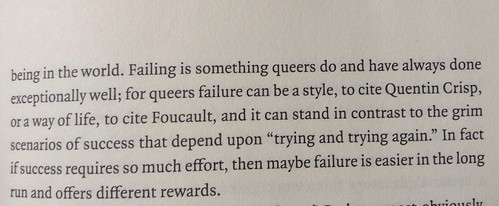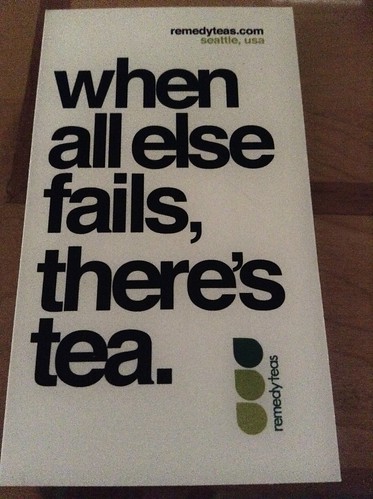Many of you know that I have spent some time thinking about failure, how failure is defined, what it means, and so on and so forth.
Recently, as in possibly three weeks ago, I was feeling like an UTTER failure. You know, the kind where you think you will NEVER do anything, no one likes you, why are you even BOTHERING? Yeah, that kind. I wondered why my friends liked me, why my employer hadn’t fired me, and if anyone would ever want to buy anything I wrote. I was like: hand to forehead WOE.
I rode it out. I talked to people. I checked reality. An acquaintance reminded me this was chemicals swishing around in my body. Eventually the storm passed, I dragged my weary soul back to dry land and took stock. I was fine. Nothing had changed, really, only my perception.
When I feel like that, in the morass of it all, I still try to keep my agreements with myself. It helps me to not spiral further down. And in the midst of that storm, I applied for a writer’s workshop that is held in the fall. I thought I was unworthy. I wouldn’t get in. But I would bother, and I would let them decide, before I rejected myself.
Last week my friend Nicole recommended the podcast Magic Lessons, which is by Elizabeth Gilbert (of Eat, Pray, Love fame). I was a little skeptical, since I wasn’t a fan of the book. But I’ve heard at least one of her TED talks, and I trust Nicole. The first episode was an interview with someone that Gilbert was coaching. It resonated for me. I had downloaded the last one, and none in between. The last was an interview with Brene Brown, who writes amazing stuff around vulnerability. Gilbert talked about people who had leapt and the net didn’t appear. Brown said, “What’s worth doing, even if I fail?”
“What do you love doing so much the word “failure” doesn’t have any meaning?” Gilbert asked. They go on to talk about inspiration and what it owes you, about being present to the process of creation and not focused on the outcomes.
I was starting to despair about moving to the next level with my writing. Saturday I came home from hanging out with some writer heroes of mine. I felt so encouraged just from those conversations. I checked my email and I found an acceptance to a writer’s workshop on the east coast. I was so stunned I made my girlfriend read it out loud. After so many rejections, it just seemed … so easy.
But when I stop and think about it more, I have been steadily working on improving my writing, however slow my pace might be. Most of our effort is like the part of the iceberg that’s under water. We only see the tiny fraction that sticks above it. And the truth is, most successes are built on many, many failures. There has to be effort and feedback and recalibration. There has to be support and encouragement. And in the process of applying for writing workshops, I have continued to make the effort.
So I’m thinking about my relationship to failure, to my ideas around failure, and the position I hold with regard to it. What would it mean if I take the idea of failure off the table? This is going to be a huge challenge for me. As I told my friend Daryl on Saturday, I’m horribly extrinsically driven. I like pleasing other people. And deadlines. Daryl suggested knowing these things could help me hack my brain into producing. So I’m going to consider that. There is no one right way to do anything. It’s the doing.
So I am going to keep plodding. And plotting.







